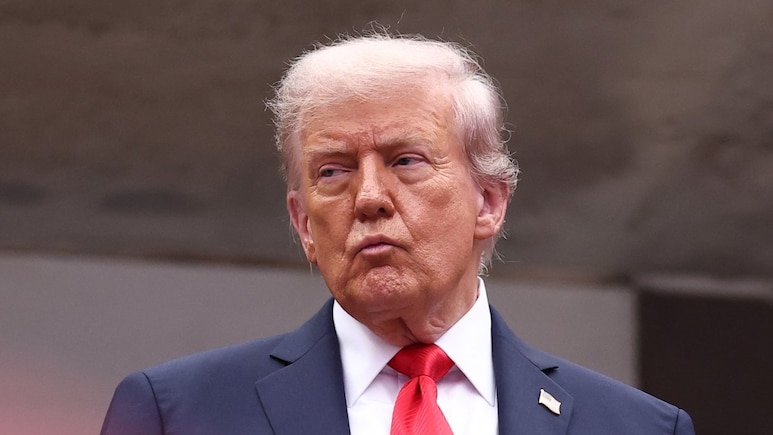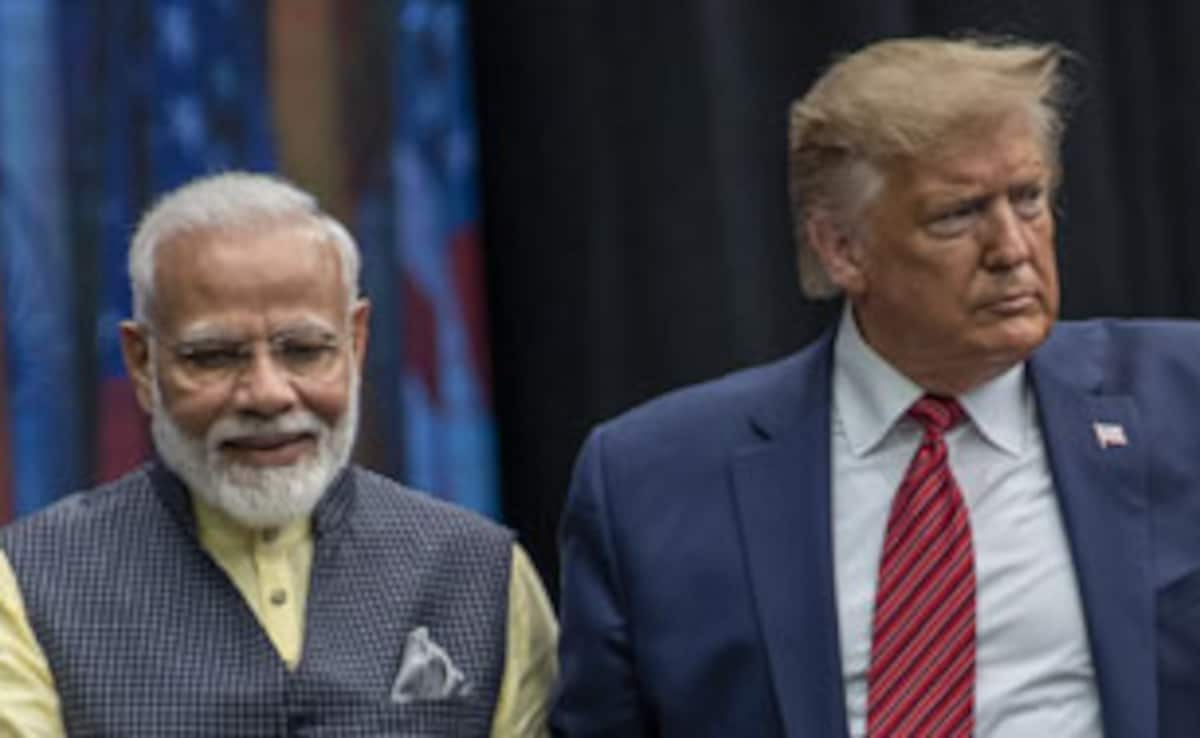
US President Donald Trump's heavy tariffs on India - 50 per cent, including a 'penalty' for buying Russian oil amid the war on Ukraine - can be partly explained by the political funding patterns of the Indian-American community in the United States, according to a pre-print study by Joyojeet Pal from the University of Michigan, and Karnav Popat and Vishnu Prakash from Ashoka University.
The paper - 'An Emerging Lobby: An Analysis of Campaign Contributions From Indian-Americans, 1998-2022) - analyses Indian-Americans' campaign contributions till the 2022 election cycling, which includes 2016, when Trump beat Hillary Clinton, and 2020, when he lost to Joe Biden.
The data says Indian-Americans favoured Clinton over Trump in 2016 and sided with Biden in 2020; in fact, in each campaign Trump got less than 1 per cent of funds from the community.
The lowest was 0.6 per in 2016. The last time Indian-Americans' support for a Republican candidate was that low was 2000, when George W Bush was elected President.
In dollar terms, during the 2020 election cycle Indian-Americans gave $46.6 million to Democrat candidates, while their Republican counterparts were given only $16.3 million.
Partisan tilt: Overwhelmingly Democrat. In 2020, $46.6M went to Dems vs $16.3M to GOP. Every industry (even agribusiness) leans blue among Indian donors. pic.twitter.com/Ll5o1qYRic
— joyojeet pal (@joyopal) September 8, 2025
And the votes have followed the dollars; before 2020 and 2024 the Indian-American Attitudes Survey said a majority of those polled from the community said they intend to vote Democrat.
That has been borne out by the fact all six serving Indian-American members of Congress - the 'samosa caucus' are Dems - including Ro Khanna, a 2028 presidential hopeful from California.
The importance of the Indian-Americans in US politics, particularly presidential elections, has grown over the past six poll cycles. In 2008 post-poll estimates, after Barack Obama won his first term, suggested 84 per cent of an estimated 2.85 million Indian-Americans voted for him.
And while it is true that historically Indian-Americans' participation in political campaigns is relatively low, around 1.3 per cent - the study notes the general marker is the extent of financial engagement - the contribution patterns reflect a clear pro-Democrat leaning.
Trump's tariffs on India may be partly explained by who funds his politics. Our study of two decades of Indian American lobbying in the US shows a strong, consistent Democrat lean, with Trump-1 scoring among the lowest ever share from Indian Americans (1/n) pic.twitter.com/w8vVmUG3Gz
— joyojeet pal (@joyopal) September 8, 2025
And, as of 2023, they are projected to be the largest Asian-American sub-group in the US, forming 1.5 per cent of the total population, the study said. They have also grown into "a particularly affluent and influential sub-group... increasingly visible in politics..."
It is that leaning, the study argues, that could explain why Trump seems to have pivoted from Indian-Americans in recent years. In 2019 he made marked overtures, including the 'Howdy Modi' event in Texas, at which Prime Minister Narendra Modi and he shared centrestage.

PM Modi and President Donald Trump at the 'Howdy Modi' event in Texas in 2019 (File).
But since returning to power last year the American President has leaned into his aggressive use of tariffs, threatening and imposing outrageous levies to try and force other countries, including those most closely allied with the US, into accepting his demands.
The President has claimed his use of tariffs - which faces a legal challenge in the US Supreme Court - is critical to re-establishing American manufacturing and bring back millions of jobs.
He has also argued high tariffs are necessary to offset equally high taxes levied by other countries, including India. Trump has frequently called India a "tariff abuser".
Trump's tariffs have been slammed as "unreasonable, unjust, and unfair" by India and have led to increased tension in India-US ties, underlined by harsh swipes; on Monday, for example, White House trade advisor Peter Navarro doubled down on his 'profiteering Brahmins' remark and threatened India.
READ | "Won't End Well For India": Trump Aide Doubles Down On 'Tariff Maharaja' Jab
It has also led to an apparent counter-pivot - India, China, and Russia leading a global bloc of developing economies to offset the impact of uncertanties caused by Trump's tariffs.
NDTV is now available on WhatsApp channels. Click on the link to get all the latest updates from NDTV on your chat.
Track Latest News Live on NDTV.com and get news updates from India and around the world

